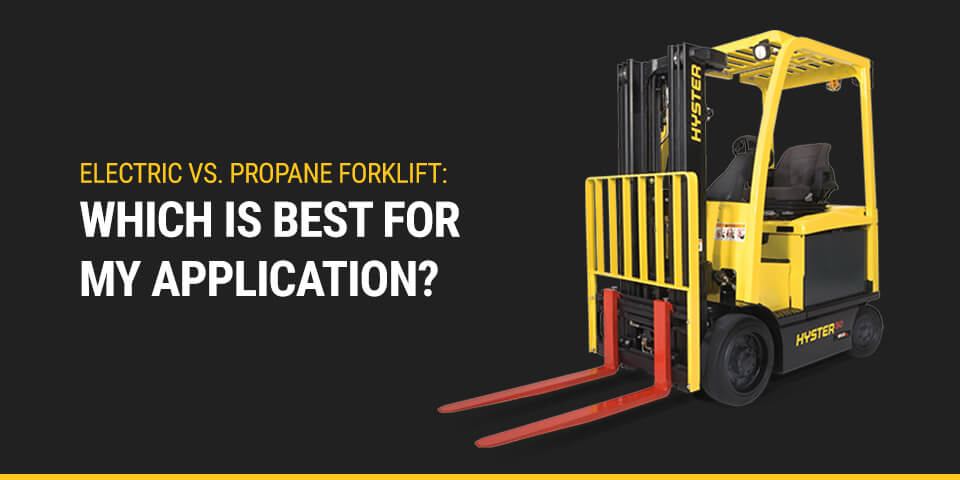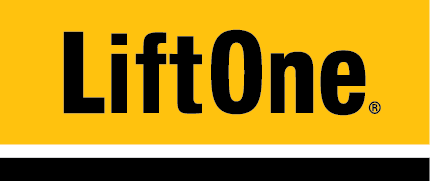
Finding the right forklift model that meets your application and operational needs is essential to maximizing your productivity. Choosing between an electric vs. propane forklift can relate to a range of factors, including cost, safety, maintenance and means of operation.
Pros and Cons of Electric
Electric forklifts use a cleaner energy source than propane models, and because of this have an overall lower cost of ownership. A big advantage of electric forklifts is that they have fewer maintenance requirements and parts that can break compared to their propane counterparts. The battery can also be charged throughout the day through opportunity charging.
Since these forklifts are emission-free they are essential in industries like food distribution, medical and pharmaceuticals, where emissions can make products unsafe. They’re also the best option for underground facilities, facilities with poor ventilation and warehouse operations like cold storage because the workers will not inhale any unsafe fumes as they work.
Many warehouse operations prefer electric forklifts because they’re often narrower than propane models and come in a wide variety of models including 4-wheel styles or 3-wheel designs to suit their aisle-width requirements.
While there are many benefits of electric forklifts, they’re not always the right choice for your operation. The cost of ownership for these models is low, but the upfront costs can be high. These models tend to have a higher purchase price and require additional expenses like battery charging stations and safety equipment for working with batteries.
Pros and Cons of Propane
The two biggest advantages of a propane forklift are the lower upfront cost and faster refuel times. You can count on propane models to operate on any terrain and operate at 100% power through operation. These forklifts are best for teams that work in remote locations where charging may not be accessible because when the propane tank is empty you can easily swap a new tank in, with no charging time.
Internal combustion models with propane can come in various designs, including cushion and pneumatic tires. These forklifts can be excellent options if you’re looking to save on your upfront purchase and are built for either indoor or outdoor applications.
The drawback of propane relates to the costs and dangers associated with the fuel type. Liquid propane is a fossil fuel, and the cost is subject to fluctuations based on economic factors. Even the low upfront cost can be quickly outweighed by the cost of propane. Additionally, these models are noisier, create emissions that can be dangerous with long-term exposure and require safety training on how to properly install propane tanks.
Find the Right Forklift for You at LiftOne
At LiftOne, our extensive selection of forklifts allows you to find the best model for your applications. Whether you need electric or internal combustion types, we have you covered. Shop our forklifts today, and get in touch with us for more information.










